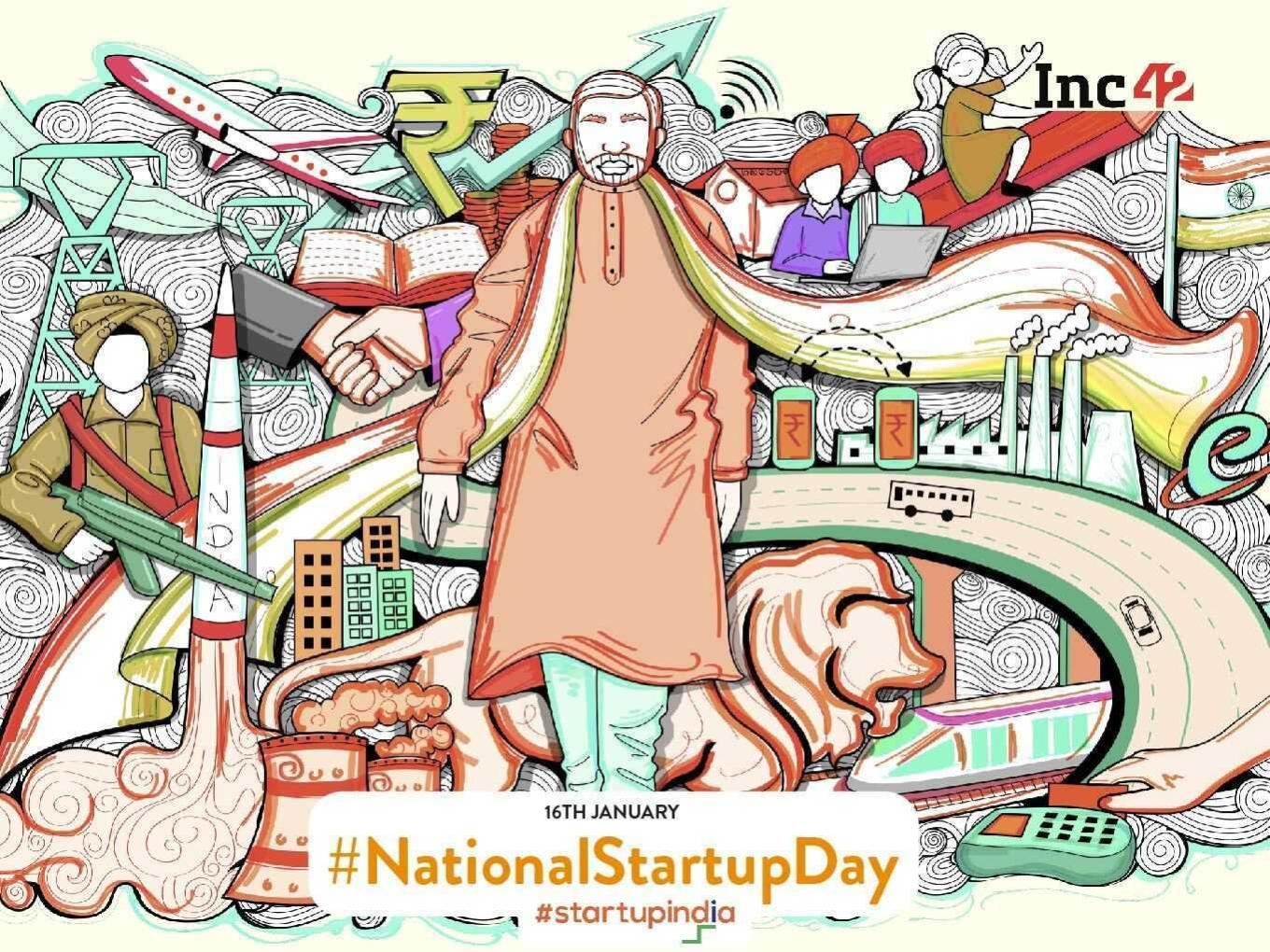
India is celebrating the National Startup Day today. An ode to the vibrant homegrown startup ecosystem, January 16 commemorates the day when Prime Minister Narendra Modi, in 2016, launched the Centre’s flagship ‘Startup India’ initiative.
In nine years since then, the Indian startup landscape has grown to boast more than 1.59 Lakh startups, 118 unicorns, $158 Bn+ funding, and more than 35 publicly listed new-age tech companies.
“The Indian startup ecosystem has undergone a remarkable transformation in the past decade… Access to funding has significantly improved, with the rise of domestic venture capital, angel investors, and global funds focussing on Indian startups. Additionally, incubation centres, accelerators, and skill development programmes have empowered young entrepreneurs across the country,” said Marut Drones cofounder and CEO Prem Kumar Vislawath.
Speaking with Inc42, Snapdeal cofounder and chairperson Kunal Bahl underscored the government’s role in building a supportive environment for startups through innovative infrastructure, favourable policies and financial support.
While there is no dearth of statistics related to the meteoric rise of the Indian startups, what is generally left unsaid is how a multi-pronged government approach, from funding to regulatory push, under the Startup India scheme paved the way for the burgeoning startup ecosystem.
One of the key pillars of the Startup India initiative is the funding and incentives doled out by both central and state governments to support budding ventures. A case in point are the Seed Fund Scheme and Fund of Funds for Startups (FFS) launched by the Centre, which have catapulted many small startups into the big leagues.
As per the Department for Promotion of Industry and Internal Trade (DPIIT), 213 incubators have been selected under the Startup India Seed Fund Scheme with a total corpus of INR 945 Cr. As of October 2024, these incubators had approved a total funding of INR 454.04 Cr for 2,490 startups.
Meanwhile, INR 11,148 Cr has been committed under the FFS scheme, which has translated to a total investment of INR 21,221.36 Cr in 1,165 startups as of 2024. On top of this, the Centre guaranteed loans worth INR 555.24 Cr to 235 startups under the credit guarantee scheme for startups, as of October 2024.
Not stopping here, the Investor Connect Portal was also launched to bridge the gap between investors and budding entrepreneurs. The portal onboarded more than 7,132 startups and 126 investors as of October 2024.
Another similar initiative and mentorship platform, MAARG (Mentorship, Advisory, Assistance, Resilience, and Growth), onboarded 1,749 mentors and 3,022 startups on its platform. As per the DPIIT, the platform has paved the way for 1456 “active mentorships”, translating into more than 16,187 hours of mentorship.
On top of this, there are multiple other steps taken by the Centre to streamline ease of doing business and reduce compliance burdens. The DPIIT estimates that 3,606 startups have so far availed tax holidays for three consecutive financial years within the first ten years of their incorporation.
Before the angel tax was scrapped last year, more than 9,187 DPIIT-recognised startups were exempted from paying taxes under Section 56(2) (viib) of the Income Tax Act.
In total, the Centre claims to have undertaken 62 “reforms” under Startup India initiative to enhance the ease of doing business, raising capital, and reducing compliance burden. This includes enabling insurance agencies, non-government provident funds, and gratuity funds to invest in alternative investment funds (AIFs), thereby mobilising institutional domestic capital for the Indian startup ecosystem.
The post National Startup Day: How A Cohesive Policy Approach Fostered A Burgeoning Startup Ecosystem appeared first on Inc42 Media.
https://ift.tt/7ZKcB0t








0 Comments